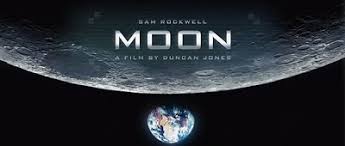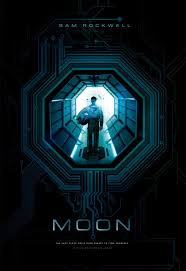
Now that the Oscars have come and gone I thought I'd made some observations. First off, if you listened to the Lake Charles' Best Sport Show culture segment on Sunday morning starting at 8:15 am CST, you would have heard Matt, Chad, Corey and my predictions, which were, if I say so myself – pretty good.
WE PICKED ALL THE RIGHT WINNERS! Unfortunately, the Academy didn't always agree with us.
Keeping in mind that we limited our picks to the nominees chosen by the Academy, we hereby present the REEL…I mean REAL…wait maybe I DO mean REEL…winners of the awards given annually by the Academy of Motion Picture Arts and Sciences, more familiarly known as Oscar since the 1930's when the Academy librarian mentioned she thought it looked like her Uncle Oscar.
In no particular order:
BEST ACTOR
 Let's start with a nominee on which we all unanimously concurred. Gary Oldman's breathtaking performance as Churchill in Darkest Hour was a well nigh impossible hurdle for any other actor to overcome. In a role that obviously brought a lifetime of skill and experience to bear, Oldman WAS Winston Churchill for 2 hours and 5 minutes. For more details on this stunning performance in this great film click here – Darkest Hour
Let's start with a nominee on which we all unanimously concurred. Gary Oldman's breathtaking performance as Churchill in Darkest Hour was a well nigh impossible hurdle for any other actor to overcome. In a role that obviously brought a lifetime of skill and experience to bear, Oldman WAS Winston Churchill for 2 hours and 5 minutes. For more details on this stunning performance in this great film click here – Darkest Hour
BEST SUPPORTING ACTOR
 Next up, Sam Rockwell handily shone above all the other contenders INCLUDING his co-star Woody Harrelson who, had Rockwell not been so amazing, I think would have won. Rockwell's portrayal of the massively flawed but redeemable deputy Dixon in Three Billboards Outside Ebbing, Missouri earned this golden statue. Click on the name for my review. (As a side note I remember the first time I ever saw Rockwell. His performance in Galaxy Quest – the Star Trek homage/spoof/love letter was quite memorable. In what instantly became one of my all time favorite movies, he was arguably the most adorably goofy character in a tremendous ensemble of gifted actors including Sigourney Weaver, the late Alan Rickman, Tony Shaloub and Tim Allen.)
Next up, Sam Rockwell handily shone above all the other contenders INCLUDING his co-star Woody Harrelson who, had Rockwell not been so amazing, I think would have won. Rockwell's portrayal of the massively flawed but redeemable deputy Dixon in Three Billboards Outside Ebbing, Missouri earned this golden statue. Click on the name for my review. (As a side note I remember the first time I ever saw Rockwell. His performance in Galaxy Quest – the Star Trek homage/spoof/love letter was quite memorable. In what instantly became one of my all time favorite movies, he was arguably the most adorably goofy character in a tremendous ensemble of gifted actors including Sigourney Weaver, the late Alan Rickman, Tony Shaloub and Tim Allen.)
BEST ACTRESS
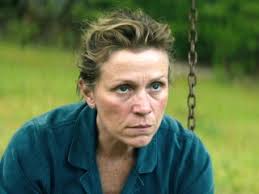 In another example of where the Academy occasionally gets it right, the brilliantly talented Frances McDormand picked up her second best actress Oscar. The first was for the charming, very pregnant and easily underestimateable Sheriff Marge in the weirdly quirky crime comedy-drama Fargo at the 1997 ceremony. This one was for Three Billboards Outside Ebbing, Missouri. This round she is the desperately grieving mother of a murdered daughter who takes her frustration over the lack of progress out on the local constabulary, who are just as anxious to get results as she is. It is a case of two groups separated by a common goal who come to loggerheads because they can not find the real culprit. But interestingly, that is not what the movie is about. For more information on this complex and moving film see my review on Three Billboards subtitled: The Main Character is Not Who You Expect
In another example of where the Academy occasionally gets it right, the brilliantly talented Frances McDormand picked up her second best actress Oscar. The first was for the charming, very pregnant and easily underestimateable Sheriff Marge in the weirdly quirky crime comedy-drama Fargo at the 1997 ceremony. This one was for Three Billboards Outside Ebbing, Missouri. This round she is the desperately grieving mother of a murdered daughter who takes her frustration over the lack of progress out on the local constabulary, who are just as anxious to get results as she is. It is a case of two groups separated by a common goal who come to loggerheads because they can not find the real culprit. But interestingly, that is not what the movie is about. For more information on this complex and moving film see my review on Three Billboards subtitled: The Main Character is Not Who You Expect
BEST SUPPORTING ACTRESS
Here is where the Academy started to get it wrong. They picked Alison Janney for I, Tonya. A solid performance, certainly, in a dramedy/documentary about the life and scandal surrounding Tonya Harding and her complicity in the attack on Nancy Kerrigan just before the 1994 Olympics. While meaning no disrespect to Ms. Janney, as often actors are limited, obviously, by the roles they inhabit, Janney's character as Tonya Harding's mother was a monotone. Mrs. Harding was portrayed as a manipulative, abusive, emotionally calloused mother. She was not allowed, due to the nature of the script and person she was playing, to use much off the pallette of colors from those she was given. The result was almost a caricature of a person. Ms. Janney performed Mrs. Harding well, but it was by no means as challenging a part to play as the one tackled by Laurie Metcalf in Ladybird.
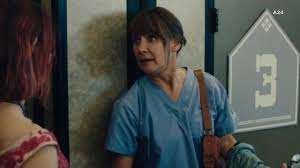 Laurie Metcalf's Marion is the mother of a rebellious, hormonal teenager struggling with her transition from child to woman. Marion actually has some traits in common with the notorious Mrs. Harding. Marion is distant and harsh at times, but despite her personal difficulties and conflicts with her daughter, manages to convey motherly purpose, love and conviction into a character that would have been unpleasant and unsympathetic in other hands. Metcalf's role was a very tricky hand to play. Too much and she would have been off putting, less and she would have seemed incapable as a mother. As it was Metcalf walked that fine ine between a flawed unpleasant character and a character with whom you feel empathy.
Laurie Metcalf's Marion is the mother of a rebellious, hormonal teenager struggling with her transition from child to woman. Marion actually has some traits in common with the notorious Mrs. Harding. Marion is distant and harsh at times, but despite her personal difficulties and conflicts with her daughter, manages to convey motherly purpose, love and conviction into a character that would have been unpleasant and unsympathetic in other hands. Metcalf's role was a very tricky hand to play. Too much and she would have been off putting, less and she would have seemed incapable as a mother. As it was Metcalf walked that fine ine between a flawed unpleasant character and a character with whom you feel empathy.
I have HAD the conversations Marion had with her daughter, Lady Bird – both as a daughter AND as the mother of a daughter, and I can tell you her portrayal was spot on.
For more on Ladybird see my review at: Lady Bird: To Anyone Who Knows a Teenaged Girl
BEST ADAPTED SCREENPLAY
There is no other way to describe the Academy's pick for best adapted screenplay as anything other than offensive and morally repugnant. Call me by Your Name was nothing but an attempt to lionize and romanticize pedophilia. Frankly, the author and everyone involved in the making of this movie should not have been awarded anything but jail sentences.
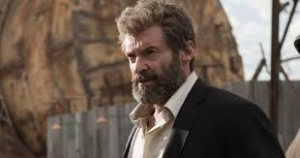 To be fair to the other nominees, I have to say I did not see any of them – mostly because I missed opportunities to do so and plan to catch up later. So, in this case, I deferred to my son who had at least seen Logan. He reported that Logan was an extremely good adaptation of the comic book series, exploring multi-dimensional character exposition while following the complex storyline set down by the original authors. If it later turns out one of the remaining three viable candidates did a better job, at least we can say that Logan deserved its place in the list of nominees.
To be fair to the other nominees, I have to say I did not see any of them – mostly because I missed opportunities to do so and plan to catch up later. So, in this case, I deferred to my son who had at least seen Logan. He reported that Logan was an extremely good adaptation of the comic book series, exploring multi-dimensional character exposition while following the complex storyline set down by the original authors. If it later turns out one of the remaining three viable candidates did a better job, at least we can say that Logan deserved its place in the list of nominees.
BEST ORIGINAL SCREENPLAY
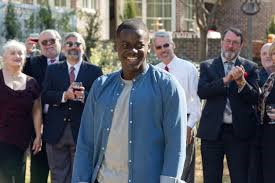 I saw all five of the nominees and I can safely say that not only is Get Out the best original screenplay – in that it was not based upon any pre-existing source material – but that it was – literally – one of the most original screenplays I have ever seen and certainly the most original of the nominees which included Lady Bird, Three Billboards Outside Ebbing, Missouri and The Big Sick, all of which were excellent. While in good company, Get Out still outshone them all in its innovative and creative story ideas, theme, plot and execution.
I saw all five of the nominees and I can safely say that not only is Get Out the best original screenplay – in that it was not based upon any pre-existing source material – but that it was – literally – one of the most original screenplays I have ever seen and certainly the most original of the nominees which included Lady Bird, Three Billboards Outside Ebbing, Missouri and The Big Sick, all of which were excellent. While in good company, Get Out still outshone them all in its innovative and creative story ideas, theme, plot and execution.
BEST ANIMATED FEATURE FILM
The Academy chose, Coco, what I thought was second best. They certainly chose the best CHILD'S animated feature film, but that is not what the category is. The category is for best animated feature film. I do not understand how they could compare Coco, which is what can only be described as a cute Halloween-like movie about a child searching for his grandfather among the dead, to the genuinely unique, classically and masterfully conjured tour de force that is Loving Vincent.


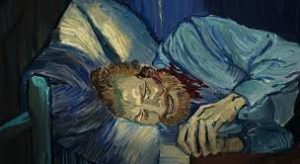 Loving Vincent follows Armand, an ersatz and initially reluctant detective, who pursues the stories surrounding the death of Vincent Van Gogh. The entire film is animated using paintings made by hundreds of talented artists in the style of Vincent Van Gogh himself. The entire film is animated the way Vincent might have seen the proceedings. As satisfactory as Coco was, choosing it over Loving Vincent would be a bit like picking a cel from a Bugs Bunny cartoon over Starry Night. For more details on this daringly imaginative labor of love and brilliant masterpiece of animation, including links to where to obtain a copy, please see my review at – Loving Vincent – an Animated Biography.
Loving Vincent follows Armand, an ersatz and initially reluctant detective, who pursues the stories surrounding the death of Vincent Van Gogh. The entire film is animated using paintings made by hundreds of talented artists in the style of Vincent Van Gogh himself. The entire film is animated the way Vincent might have seen the proceedings. As satisfactory as Coco was, choosing it over Loving Vincent would be a bit like picking a cel from a Bugs Bunny cartoon over Starry Night. For more details on this daringly imaginative labor of love and brilliant masterpiece of animation, including links to where to obtain a copy, please see my review at – Loving Vincent – an Animated Biography.
BEST ANIMATED SHORT
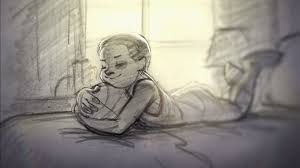 At least the Academy got this right. Dear Basketball is a lovely inspirational animated film based on the poem Kobe Bryant wrote about his love of the sport, commemorating his retirement and presented at the ceremony honoring him for his lifetime achievements.
At least the Academy got this right. Dear Basketball is a lovely inspirational animated film based on the poem Kobe Bryant wrote about his love of the sport, commemorating his retirement and presented at the ceremony honoring him for his lifetime achievements.
BEST PICTURE
The only positive thing I can say about the Academy's ill-considered choice of The Shape of Water as best picture is that at least they didn't pick the movie about the pedophile. Please read my review of this misbegotten movie at: Shape of Water – Offensive on so Many Levels.
 There were many excellent choices to be had but hands down my pick would have been Darkest Hour. Darkest Hour features one of the best performances anywhere by anyone. Darkest Hour also is a detailed and fascinating account of a moment in time shaped by courageous men, great and small, who changed the course of history almost solely by their foresight, heroism, stalwart determination to stand up to the face of evil and refusal to buckle under the massive pressure of others' cowardice. Simultaneously, the movie openly presents the foibles, and occasionally almost whimsical personality of one of the most powerful men in history – Winston Churchill, humanizing him in ways that make it easy to believe we can all aspire to greatness in our own way, if we are but willing to self-sacrifice for honor and the protection of others.
There were many excellent choices to be had but hands down my pick would have been Darkest Hour. Darkest Hour features one of the best performances anywhere by anyone. Darkest Hour also is a detailed and fascinating account of a moment in time shaped by courageous men, great and small, who changed the course of history almost solely by their foresight, heroism, stalwart determination to stand up to the face of evil and refusal to buckle under the massive pressure of others' cowardice. Simultaneously, the movie openly presents the foibles, and occasionally almost whimsical personality of one of the most powerful men in history – Winston Churchill, humanizing him in ways that make it easy to believe we can all aspire to greatness in our own way, if we are but willing to self-sacrifice for honor and the protection of others.
I just do not see how they could reject such a magnificent film as Darkest Hour in favor of a movie which examines a woman's selfish and disturbing descent into bestiality.
CINEMATOGRAPHY


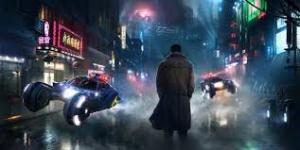 I deferred on this category to my husband who is a gifted amateur photographer. After examining the work done in all of the nominated films he thought Dunkirk should have squeaked past Blade Runner 2049, though he admitted that Blade Runner 2049 demonstrated exceptionally good craftsmanship in that art. So I am pretty content with the Academy's choice of Roger Deakins for Blade Runner 2049 here.
I deferred on this category to my husband who is a gifted amateur photographer. After examining the work done in all of the nominated films he thought Dunkirk should have squeaked past Blade Runner 2049, though he admitted that Blade Runner 2049 demonstrated exceptionally good craftsmanship in that art. So I am pretty content with the Academy's choice of Roger Deakins for Blade Runner 2049 here.
COSTUME DESIGN
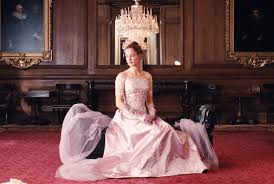 I know just about nothing concerning fashion and whether or not a particular costume was brilliantly recreated, difficult to construct or pulled off of a rack at Walmart. Therefore, I figure it is safe to assume that Mark Bridges' acquisition of that award for his work in Phantom Thread ABOUT a fashion designer is a pretty good bet. besides, the dresses are really pretty. LOL
I know just about nothing concerning fashion and whether or not a particular costume was brilliantly recreated, difficult to construct or pulled off of a rack at Walmart. Therefore, I figure it is safe to assume that Mark Bridges' acquisition of that award for his work in Phantom Thread ABOUT a fashion designer is a pretty good bet. besides, the dresses are really pretty. LOL
BEST DIRECTOR
My objections to The Shape of Water are the same as those given above for Best Picture only more so as the director of a film is the captain of the ship and therefore the court of last resort and where the buck stops for the disaster or masterpiece which is created.

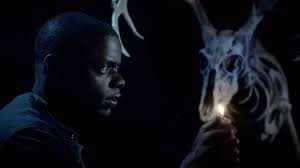
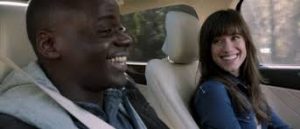
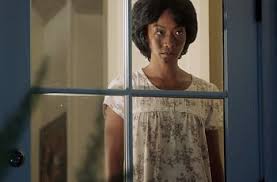
 To my thinking, even had The Shape of Water not contained such offensive elements, Jordan Peele deserved the best director Oscar far more for Get Out. Jordan Peele both wrote and directed this fable exposing the truth behind the smug and smarmy smiles of wealthy elitist white liberals towards minorities whose lives they carelessly use like so much marketplace clutter.
To my thinking, even had The Shape of Water not contained such offensive elements, Jordan Peele deserved the best director Oscar far more for Get Out. Jordan Peele both wrote and directed this fable exposing the truth behind the smug and smarmy smiles of wealthy elitist white liberals towards minorities whose lives they carelessly use like so much marketplace clutter.
Mr. Peele's use of sound and cinematography, fantasy elements and music, editing choices and plot twists all managed to deftly balance across a tightrope between horror and humor, creating a movie the likes of which I have not ever seen. Although there were many creative people involved and he did not singlehandedly make this film Mr Peele was the one who chose amongst an infinite choice of elements available to him to scupt this mesmerizing tale. Again, as the captain of this shiop he deserves the kudos, just as del Toro deserves the disapprobation. Hitchcock, I would be so bold as to guess, would have enjoyed Get Out, so suspenseful and woven throughout with intrigue, misdirection and cleverly laid clues it is. I can not help but wonder if the shoe Mr. Peele constructed of liberal hypocricies fit just a bit too tight for them to be comfortable in conferring the award Mr. Peele so clearly deserved.
FILM EDITING
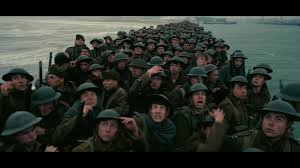


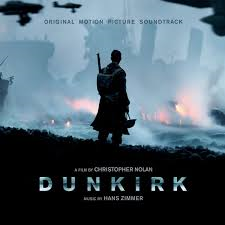
 Another choice where the Academy got it right. Dunkirk was chosen. The filmmakers had the interesting challenge of how to present one story wherein a certain aspect took place over a period of weeks, another essential element took days and a third was only a matter of hours. And I think the editor, Lee Smith, cracked this nut quite effectively and cleverly.
Another choice where the Academy got it right. Dunkirk was chosen. The filmmakers had the interesting challenge of how to present one story wherein a certain aspect took place over a period of weeks, another essential element took days and a third was only a matter of hours. And I think the editor, Lee Smith, cracked this nut quite effectively and cleverly.
MAKEUP AND HAIR STYLING

 One of the few others that the Academy chose wisely. Although Wonder was brilliant the makeup for Darkest Hour was transformative. Not only Gary Oldman's face but his entire body structure was altered to reproduce the distinctive Churchill physique.
One of the few others that the Academy chose wisely. Although Wonder was brilliant the makeup for Darkest Hour was transformative. Not only Gary Oldman's face but his entire body structure was altered to reproduce the distinctive Churchill physique.
ORIGINAL SCORE
 All of the music in all five of the nominees was beautiful and I will not begrudge the fact that The Shape of Water won for what is rightfully a lovely score by Alexandre Desplat, but you think they would have at least thrown a bone to Star Wars: The Last Jedi. I mean it IS John Williams!!
All of the music in all five of the nominees was beautiful and I will not begrudge the fact that The Shape of Water won for what is rightfully a lovely score by Alexandre Desplat, but you think they would have at least thrown a bone to Star Wars: The Last Jedi. I mean it IS John Williams!!
BEST ORIGINAL SONG
While "Remember Me" from Coco , the song chosen by the Academy, was kind of cute in a harmless, innocuous, forgettably Disney-ish sort of way, I can't remember how it goes off the top of my head. But "This is Me" by Benj Pasek and Justin Paul from The Greatest Showman should have won.

 "This is Me" is the kind of song that will stick with you – not only because it is very catchy and fun to hear and sing, but it is inspirational and uplifting and is something you will want to recall in moments of frustration or challenge or even despair. "This is Me" is an anthem for those who are determined to pick themselves up and start over, who desire nothing more than to be left alone to strive for greatness without the burden of artificial obstacles placed in their way by interfering hypocritical cliquish elitists who think they are better than others because of the privilege to which they were born – oh wait, now I see why the liberal elite in the voting Hollywood establishment didn't want to pick it. Silly me.
"This is Me" is the kind of song that will stick with you – not only because it is very catchy and fun to hear and sing, but it is inspirational and uplifting and is something you will want to recall in moments of frustration or challenge or even despair. "This is Me" is an anthem for those who are determined to pick themselves up and start over, who desire nothing more than to be left alone to strive for greatness without the burden of artificial obstacles placed in their way by interfering hypocritical cliquish elitists who think they are better than others because of the privilege to which they were born – oh wait, now I see why the liberal elite in the voting Hollywood establishment didn't want to pick it. Silly me.
PRODUCTION DESIGN
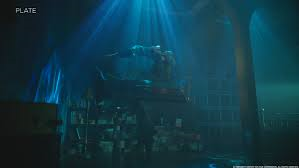 OK I'll give The Shape of Water this one as one it might actually have legitimately won. Although all the nominees created amazing worlds, there is an argument for the dream and water worlds created in Shape of Water. It is just a shame they didn't put these beautiful sets to better purpose than this egregiously misanthropic excuse for extreme selfishness and sexual depravity.
OK I'll give The Shape of Water this one as one it might actually have legitimately won. Although all the nominees created amazing worlds, there is an argument for the dream and water worlds created in Shape of Water. It is just a shame they didn't put these beautiful sets to better purpose than this egregiously misanthropic excuse for extreme selfishness and sexual depravity.
SOUND EDITING and SOUND MIXING
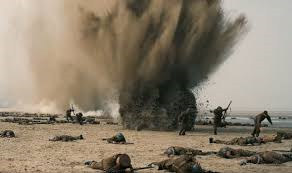

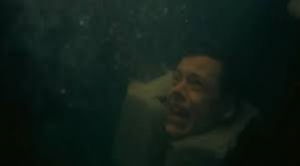 To me these awards were a toss up between Baby Driver and Dunkirk, and Dunkirk won. The challenge of combining dialogue, sound effects and music into a cohesive whole must have posed an especially creative challenge given the surroundings ran the gamut from inside a metal ship run aground to the open sea to being able to reasonably hear over World War II aircraft during a dog fight, sounds one might hear underwater, explosions and the clacking of boots on empty streets. I can applaud and respect this choice.
To me these awards were a toss up between Baby Driver and Dunkirk, and Dunkirk won. The challenge of combining dialogue, sound effects and music into a cohesive whole must have posed an especially creative challenge given the surroundings ran the gamut from inside a metal ship run aground to the open sea to being able to reasonably hear over World War II aircraft during a dog fight, sounds one might hear underwater, explosions and the clacking of boots on empty streets. I can applaud and respect this choice.
VISUAL EFFECTS

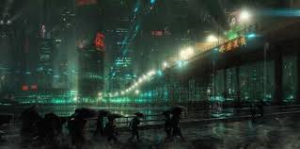

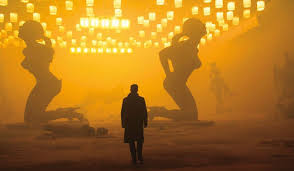 Lastly, Blade Runner 2049 earned its award for visual effects handily in the world of red lighted dust, dark rain swept vistas and holograph enhanced interactive environments. It's beautiful but stark and intimidating world deserved its win.
Lastly, Blade Runner 2049 earned its award for visual effects handily in the world of red lighted dust, dark rain swept vistas and holograph enhanced interactive environments. It's beautiful but stark and intimidating world deserved its win.
DOCUMENTARY FEATURE
DOCUMENTARY SHORT
FOREIGN LANGUAGE FILM
LIVE ACTION SHORT
Sadly I saw none of the nominees for these last four categories.
Let me know in the comments what your favorites were in any or all of the categories. If you like, present a convincing argument and I might post it as all or part of a guest rebuttal.
Thanks for reading!
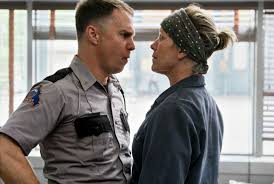 Three Billboards Outside Ebbing, Missouri, (SEE RADIO SHOW HERE and the REVIEW HERE) and his stint as
Three Billboards Outside Ebbing, Missouri, (SEE RADIO SHOW HERE and the REVIEW HERE) and his stint as 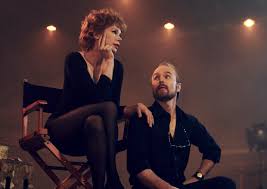 Bob Fosse in the miniseries Fosse/Verdun. But my favorite performance of his will always be the first one I ever saw him in,
Bob Fosse in the miniseries Fosse/Verdun. But my favorite performance of his will always be the first one I ever saw him in,  Galaxy Quest, the parody / love letter to Star Trek.
Galaxy Quest, the parody / love letter to Star Trek.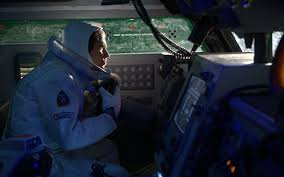 So I was duly intrigued by a story that would see Rockwell go back out into space. In Moon he does just that. Moon is a tour-de-force, almost a one man show.
So I was duly intrigued by a story that would see Rockwell go back out into space. In Moon he does just that. Moon is a tour-de-force, almost a one man show. I warn you I’m going to be a bit disingenuous about this movie because I do not want to spoil it anymore than I have to for the sake of the following analysis. Moon is about a man and a clone. I will tell you that the cleverly written script leaves “Easter eggs” around giving hints.
I warn you I’m going to be a bit disingenuous about this movie because I do not want to spoil it anymore than I have to for the sake of the following analysis. Moon is about a man and a clone. I will tell you that the cleverly written script leaves “Easter eggs” around giving hints. Set in 2035, the story initially explores an examination of how one copes alone on a solitary mission for an extended period of time. Moon then, by turns, becomes an examination in psychology, a mystery, a buddy movie, and eventually a thoughtful consideration of what it means to be a human with the soul. This last led me to realize that Moon could easily be, whether that was on the mind of the filmmaker or not, an analogy for the in vitro created embryos, especially those abandoned as excess or unwanted by the sperm and egg donors who should have accepted their responsibility as parents.
Set in 2035, the story initially explores an examination of how one copes alone on a solitary mission for an extended period of time. Moon then, by turns, becomes an examination in psychology, a mystery, a buddy movie, and eventually a thoughtful consideration of what it means to be a human with the soul. This last led me to realize that Moon could easily be, whether that was on the mind of the filmmaker or not, an analogy for the in vitro created embryos, especially those abandoned as excess or unwanted by the sperm and egg donors who should have accepted their responsibility as parents. His mission contract is for 3 years, monitoring the mining output of extremely valuable *helium-3 from the Moon. Sam’s only connection to Earth is from one-way video messages of his wife and baby daughter.
His mission contract is for 3 years, monitoring the mining output of extremely valuable *helium-3 from the Moon. Sam’s only connection to Earth is from one-way video messages of his wife and baby daughter. 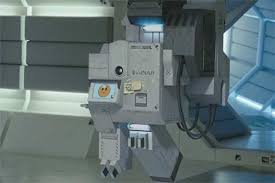 His only companion or foil for his comments is GERTY who looks more like a Welcome Wagon than even a robot and is voiced by the now infamous Kevin Spacey, who’s measured tones, (giving the devil his due), attempt to offer Sam what limited comfort of which it is capable.
His only companion or foil for his comments is GERTY who looks more like a Welcome Wagon than even a robot and is voiced by the now infamous Kevin Spacey, who’s measured tones, (giving the devil his due), attempt to offer Sam what limited comfort of which it is capable. Sam Bell becomes desperate for any kind of human interaction, longing for personal communication, but forgets that one should be careful for what one wishes as information can be as heartbreaking as it is educational.
Sam Bell becomes desperate for any kind of human interaction, longing for personal communication, but forgets that one should be careful for what one wishes as information can be as heartbreaking as it is educational.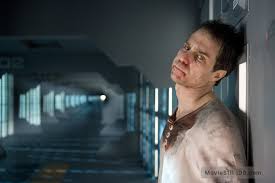 Rockwell does a terrific job, even landing his performance in a list of one of the top 10 most egregious Oscar snubs. Rockwell’s Sams are at once the exact same but completely different. One Sam is simply further down the road than the other and Rockwell does a magnificent job of making them completely distinguishable, while at the same time leaving the door open for alternative interpretations, such as: is Sam Bell really only losing his mind? (Rest assured, the movie will eventually answer all the pertinent questions). But during the course of the movie Rockwell’s dynamic performance leaves all possibilities viable (pun intended).
Rockwell does a terrific job, even landing his performance in a list of one of the top 10 most egregious Oscar snubs. Rockwell’s Sams are at once the exact same but completely different. One Sam is simply further down the road than the other and Rockwell does a magnificent job of making them completely distinguishable, while at the same time leaving the door open for alternative interpretations, such as: is Sam Bell really only losing his mind? (Rest assured, the movie will eventually answer all the pertinent questions). But during the course of the movie Rockwell’s dynamic performance leaves all possibilities viable (pun intended). The scenes on the surface of the Moon are well done and very believable, especially when considering Moon‘s mini budget of $5,000,000 and scant shooting schedule of 33 days in Shepperton Studios.
The scenes on the surface of the Moon are well done and very believable, especially when considering Moon‘s mini budget of $5,000,000 and scant shooting schedule of 33 days in Shepperton Studios. 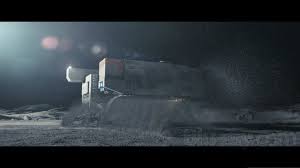 The director/writer Duncan Jones preferred models to CGI so employed Bill Pearson, the supervising “animator” for Alien, who was happily at loose ends because of a writers’ strike, to create the rovers and harvesters .
The director/writer Duncan Jones preferred models to CGI so employed Bill Pearson, the supervising “animator” for Alien, who was happily at loose ends because of a writers’ strike, to create the rovers and harvesters .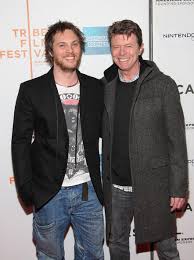 First time feature director, Duncan Zowie Haywood Jones’ only other claims to fame up to this time were being a commercial director and the son of famous rocker David Bowie. The film even opens with the line: “Where are we now?” the title of one of his father’s songs.
First time feature director, Duncan Zowie Haywood Jones’ only other claims to fame up to this time were being a commercial director and the son of famous rocker David Bowie. The film even opens with the line: “Where are we now?” the title of one of his father’s songs.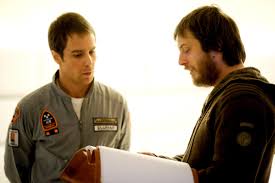 Jones wrote Moon as a vehicle for Sam Rockwell. Jones had been interested in casting Rockwell as a villain in another film, Mute. While Rockwell liked Mute and was tempted, he was tired of playing bad guys. So Rockwell challenged Jones – that if Jones wrote something of the same quality which would trust him, Rockwell, in a leading role, he would do it. So Jones did — and Rockwell agreed.
Jones wrote Moon as a vehicle for Sam Rockwell. Jones had been interested in casting Rockwell as a villain in another film, Mute. While Rockwell liked Mute and was tempted, he was tired of playing bad guys. So Rockwell challenged Jones – that if Jones wrote something of the same quality which would trust him, Rockwell, in a leading role, he would do it. So Jones did — and Rockwell agreed.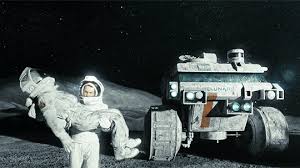 The soundtrack by Clint Mansell is reminiscent of Philip Glass. Dissonant string chords, heavily rhythmed but mostly without regular tempo, are occasionally interspersed with simple childish tunes which would be at home in a child’s jewelry box.
The soundtrack by Clint Mansell is reminiscent of Philip Glass. Dissonant string chords, heavily rhythmed but mostly without regular tempo, are occasionally interspersed with simple childish tunes which would be at home in a child’s jewelry box.  The effect is one of both low level, anxiety driven tension and what a quiet but hostile space environment might sound like were it anthropomorphized to conduct an orchestra. The overall result is both unsettling and lulling.
The effect is one of both low level, anxiety driven tension and what a quiet but hostile space environment might sound like were it anthropomorphized to conduct an orchestra. The overall result is both unsettling and lulling. As the conclusion in the favor of those not “born of woman” becomes more and more obvious, there is an inevitability for any thought conscientious person to reach the same judgement concerning those children whose conception took place in a petri dish – the in vitro embryos bred and then left discarded as “extras” and “backups” then ultimately … forgotten to death. The “where” one obtains life is not important. They – both clones and science-driven and conceived embryos – are undeniably human.
As the conclusion in the favor of those not “born of woman” becomes more and more obvious, there is an inevitability for any thought conscientious person to reach the same judgement concerning those children whose conception took place in a petri dish – the in vitro embryos bred and then left discarded as “extras” and “backups” then ultimately … forgotten to death. The “where” one obtains life is not important. They – both clones and science-driven and conceived embryos – are undeniably human. When Edward Rutledge protests against John Adams’ assertion that slaves are Americans, John Adams points out, appropriate to that particular historic juncture, in the brilliant musical 1776: “They are people, and they are here. If there’s any other requirement, I haven’t heard it,” regardless of how they arrived. Similarly, I would point out, the only prerequisite to being considered human, with all of the attendant God given rights and dignities, is to be — a human.
When Edward Rutledge protests against John Adams’ assertion that slaves are Americans, John Adams points out, appropriate to that particular historic juncture, in the brilliant musical 1776: “They are people, and they are here. If there’s any other requirement, I haven’t heard it,” regardless of how they arrived. Similarly, I would point out, the only prerequisite to being considered human, with all of the attendant God given rights and dignities, is to be — a human. 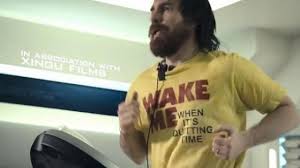 Doesn’t matter how you arrived: sexual interaction, artificial insemination, petri dish, cloning, or (in the case of extended sci fi examples) transporter accidents – a human is a human and should be treated as such.
Doesn’t matter how you arrived: sexual interaction, artificial insemination, petri dish, cloning, or (in the case of extended sci fi examples) transporter accidents – a human is a human and should be treated as such.
